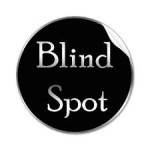By John W Hanson
Under cover of night, completely clothed in black, and armed to the teeth with high tech gadgets, a team of 4 slip out of a cargo van and creep stealthily down an alley. Within minutes they succeed in scaling a wall, cutting a large hole in a plate glass window and disarming an elaborate alarm system. They proceed to outmaneuver video cameras and security personnel while snaking their way through dark hallways to the basement. Their goal, of course, is to gain access to the well-endowed bank vault. Observers might be shocked to discover who put them up to this crookery; their” boss” is none other than the bank president.
Why would a bank president pay someone to do such a thing? To test the security of their system. To be honest about just how safe his customer’s money is. Risk assessment is a huge business. Many people make a good, honest living trying to break into buildings, hack into accounts or take advantage of systems. This industry serves governments and businesses by finding their blind spots – because every company and every government agency has blind spots.
People have blind spots too. Everybody does. Some of us have addictions but can’t admit it. Many of us have bad habits that don’t look so bad from where we’re sitting. All of us have tainted attitudes, detrimental idiosyncrasies and weaknesses that are hard to acknowledge without outside help. Everyone needs someone to help them find their blind spots. This is why world class athletes hire coaches and why great writers hire great editors.
It may surprise many people to discover that God is on our side and is interested in helping us with our blind spots. Two and a half millennia ago a poet recognized this truth and penned these prayers: “Open my eyes to see the wonderful truths in your instructions. Keep me from lying to myself; give me the privilege of knowing your instructions.” (Psalm 119:18 &29 NLT)
Those not personally familiar with the Bible, may have accepted the misguided viewpoint that the Bible is an irrelevant, mysterious and intimidating book that is loaded with mythology and stifling prohibitions. When, in fact, the Bible is full of eternal principles and life-giving advice. It was inspired by God and intended to help us with our blind spots. It is God’s gift to mankind. For thousands of years millions of people, from many cultures, have truly embraced God’s Word and subsequently testified to its power and effectiveness in radically improving lives.
Here’s a huge tip: don’t just read the Bible – let it expose your blind spots and then do something about those blinds spots. This requires a degree of honesty that many people are unwilling to explore. A contemporary of Jesus Christ put it like this: “But don’t just listen to God’s word. You must do what it says. Otherwise, you are only fooling yourselves. For if you listen to the word and don’t obey, it is like glancing at your face in a mirror. You see yourself, walk away, and forget what you look like. But if you look carefully into the perfect law that sets you free, and if you do what it says and don’t forget what you heard, then God will bless you for doing it.” (James 1:22-25 NLT) Let God become your risk assessment advisor today, because we all have blind spots.
The above article, “Identifying Blind Spots,” is written by John W. Hanson. The article was taken from his blog, www.actsii.org.
The material is copyrighted and should not be reprinted under any other name or author. However, this material may be freely used for personal study or research purposes.



